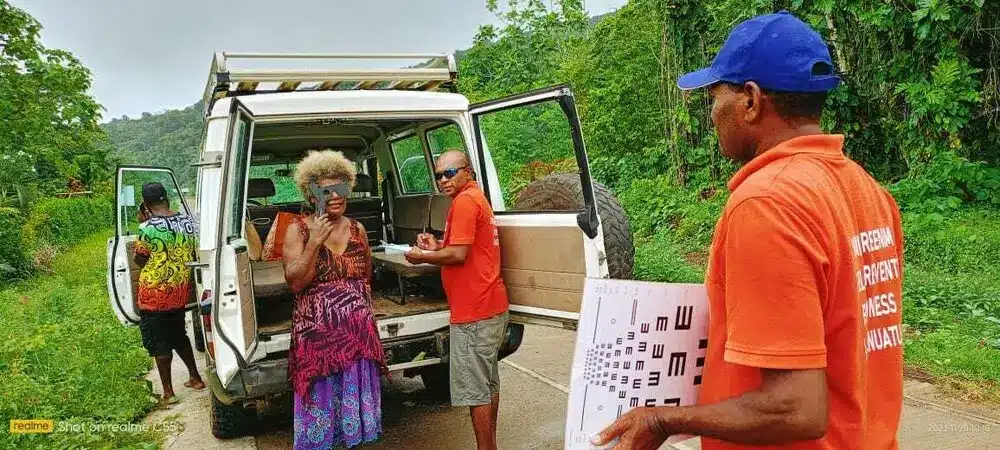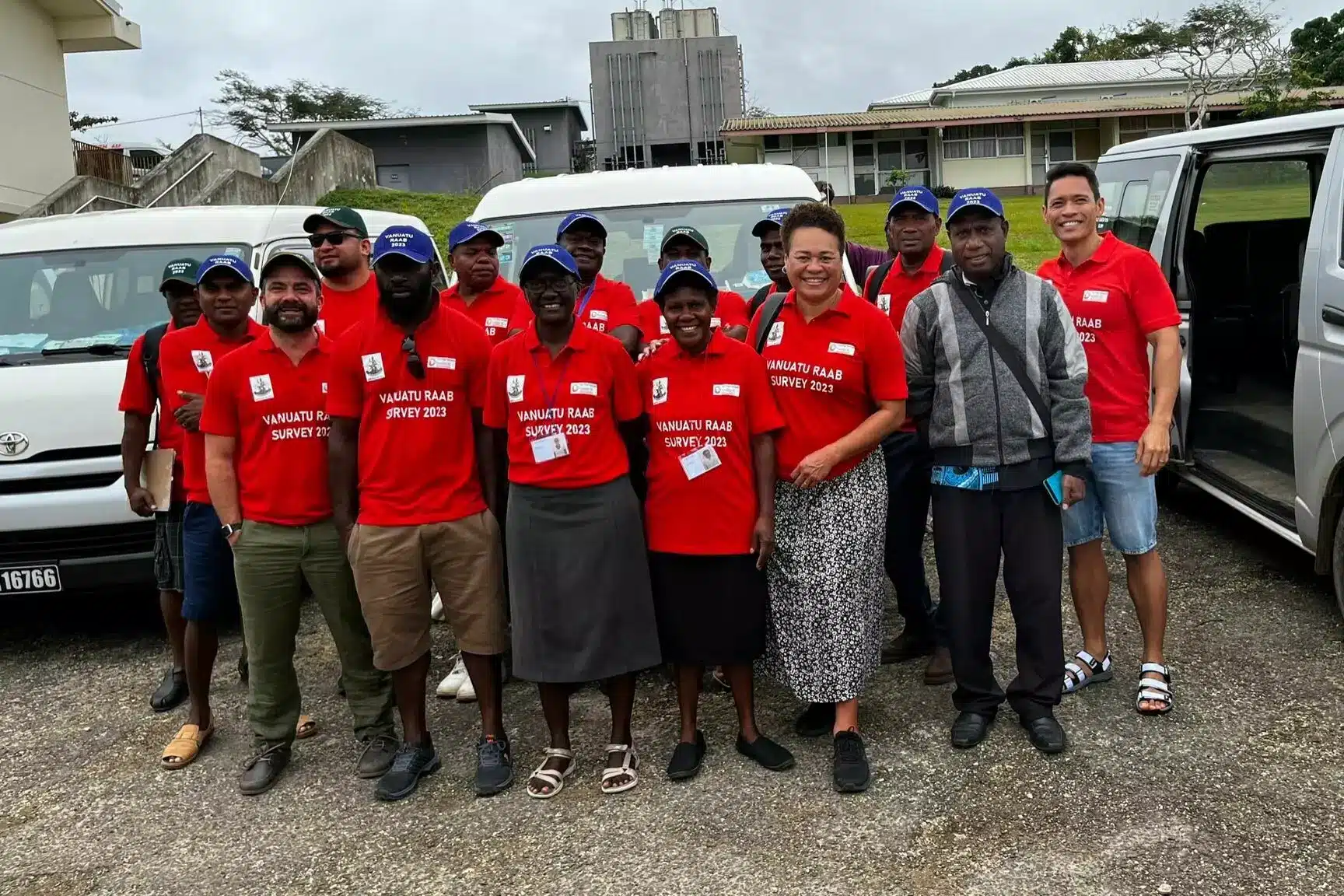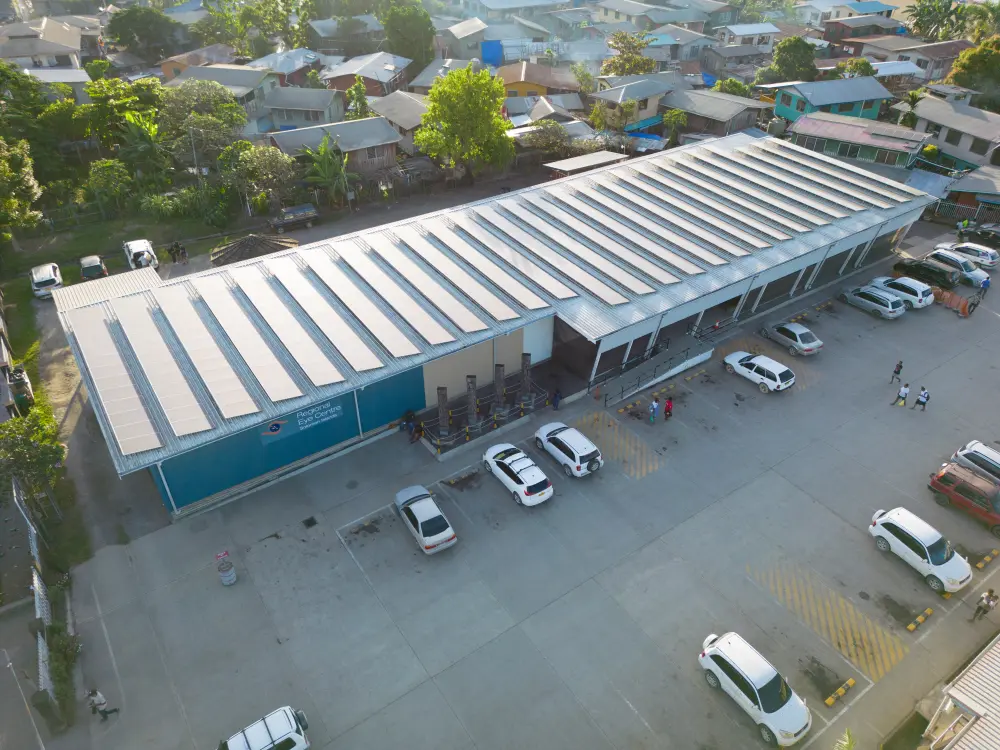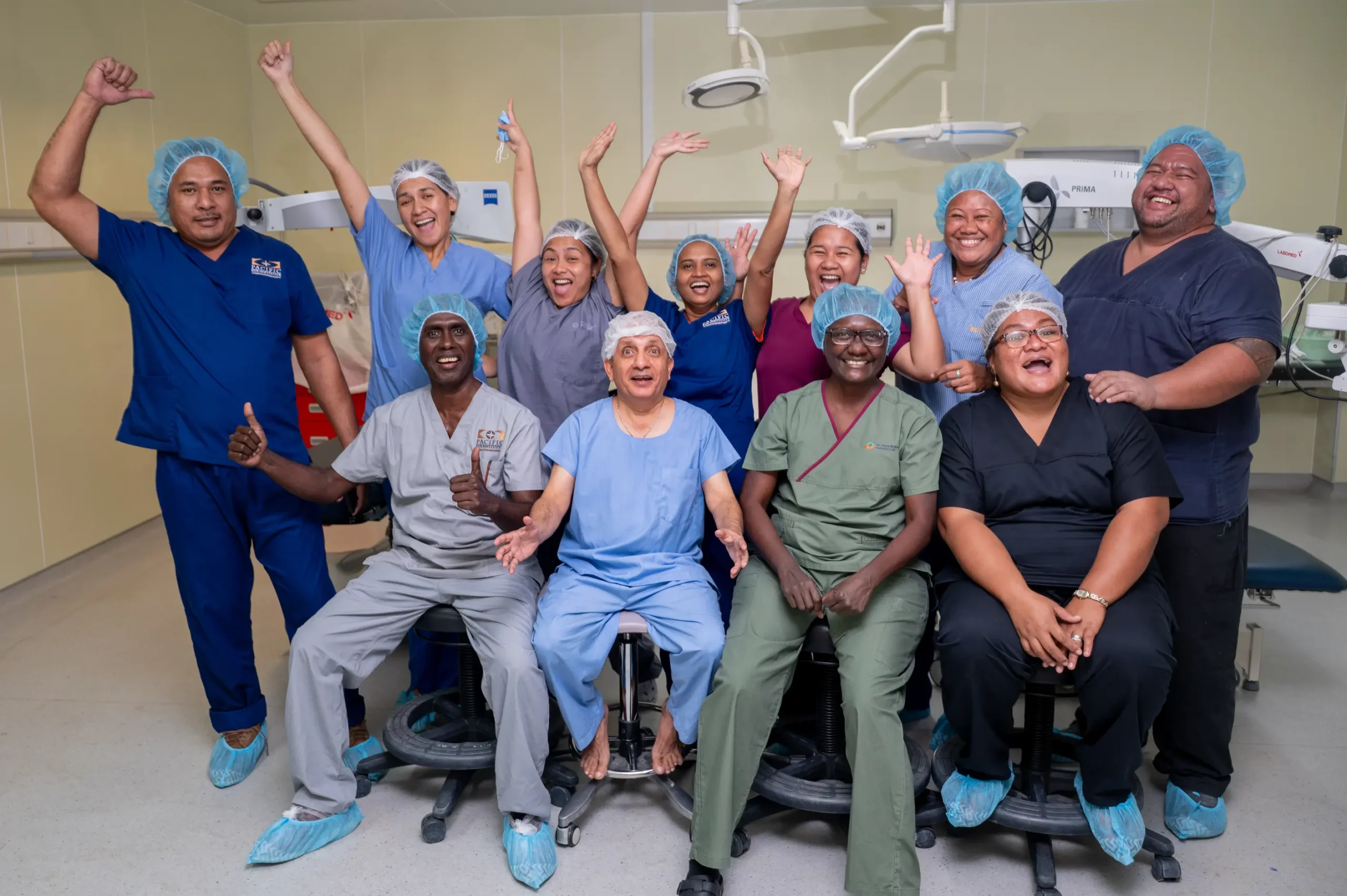A dedicated eye team has officially completed the first-ever Rapid Assessment of Avoidable Blindness (RAAB)7 survey in Vanuatu.
The inaugural survey, for adults over 50 years, began on 8 August 2023 and was recently completed in the northern-most Torba Province. The survey was ably led by Ni-Vanuatu ophthalmologist, Dr Johnson Kasso, the Ministry of Health and Medical Services (MHMS) Vanuatu RAAB survey Principal Investigator, and supported by Dr Iris Wainiqolo, Research Lead, and her team at The Fred Hollows Foundation NZ.
Despite several obstacles, such as the vast expanse of the island nation and the impact of tropical cyclone Lola, the RAAB team managed to visit 142 clusters (made up of individual villages or settlements) from all six provinces of Vanuatu, examining the eyes of nearly 5,000 people.
Visiting so many rural and isolated communities meant the RAAB survey teams could reach people who wouldn’t otherwise have access to eye care. Patients who were screened and identified with eye problems were either treated or referred for further care. The team also took the opportunity to spread awareness about eye health and services available and increase awareness about conditions like diabetes and how it can lead to blindness if not effectively managed.

The RAAB research evidence will inform the MHMS and provincial and national planning for Vanuatu eye health services, with an overall goal to improve eye health and reduce avoidable vision loss. The updated RAAB7 survey methodology is the first of its kind to be implemented in the world. It is fully digitalised and supported by the London School of Hygiene and Tropical Medicine and Peek Vision technology.
“Vanuatu has never had this form of survey implemented; this is the first with five Pacific Ophthalmologists involved (four of whom are Foundation-supported graduates and a Pacific Eye Institute lecturer), eight Vanuatu eye nurses, one Pacific trainer and an in-country Coordinator,” says Komal Ram, Senior Pacific Programme Manager for The Fred Hollows Foundation NZ.
The collaborative team effort saw Dr Ana Cama (RAAB trainer, The Fred Hollows Foundation), Dr Nola Pikacha (Solomon Islands) Dr Duke Mataka (Tonga), and Dr Mundi Qoqonokana (Fiji) coming together to make this happen for Vanuatu and to support MOH Vanuatu-based Dr Johnson Kasso, Dr Andronico Ly, and the Vanuatu eye health team. Port Vila staff were also involved in the logistics planning and the survey itself.
This important work would not have been made possible without the support provided by the Ministry of Health and Medical Services, Vanuatu, The New Zealand Ministry of Foreign Affairs and Trade and the JN & HB Williams Foundation.
“Almost all the eye health workers in-country have been involved at some stage of the survey – whether assisting the coordinator to speak with community members or arranging logistics,” says Dr Iris Wainiqolo, Research Lead, The Fred Hollows Foundation NZ.
“Nurses who participated found the work enjoyable as it felt much like a refresher course. They appreciated the opportunity to observe cases, interact with patients and collaborate with the ophthalmologists.”
“We are also grateful to Mr Dunstan Tate, the RAAB Coordinator, the ophthalmologists, the ophthalmic nurses, and The Foundation for making this plan a reality and we look forward to generating the evidence for action.”
Dr Kasso noted several important lessons from the recent RAAB survey that other countries wishing to undertake a RAAB may like to consider, including having at least four members on a survey team rather than three when surveying in rural areas, having back-up plans that account for time delays due to natural disasters, rough seas and other socio-geographical issues, and of course, “RAAB is best to be done outside of the cyclone season,” he adds
Work is now underway to wrap up the project, prepare Vanuatu’s RAAB report, and move the RAAB equipment to Samoa to implement a RAAB survey.
Watch Dr Kasso’s video message below.




